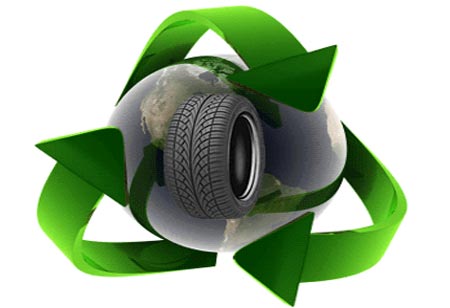Thank you for Subscribing to Environmental Business Review Weekly Brief
The Crucial Role of Recycling Used Tires in Creating a Sustainable Future
Recycling used tires helps minimize environmental risks, save energy, drive innovation, and convert waste into valuable resources, supporting sustainability, economic development, and efforts to combat climate change.

By
Environmental Business Review | Wednesday, August 20, 2025
Stay ahead of the industry with exclusive feature stories on the top companies, expert insights and the latest news delivered straight to your inbox. Subscribe today.
FREMONT, CA: Discarded tires create a major waste management challenge, with millions thrown away each year, straining landfills and damaging the environment. Recycling offers an effective solution, as conventional disposal methods—like burying or stockpiling—use up limited landfill space and lead to unsightly, sometimes hazardous tire piles.
The stockpiles are not just eyesores; they also pose fire hazards, releasing toxic fumes and creating breeding grounds for disease-carrying insects. Old tires are not just a waste management concern but an environmental hazard. Recycling mitigates these dangers by diverting tires from landfills and reusing their materials in eco-friendly ways, reducing the ecological footprint associated with tire disposal. Recycling old tires offers economic benefits. Instead of being treated as worthless waste, tires become valuable resources in the recycling industry. Recycling old tires contributes to energy conservation and carbon emissions reduction.
The rubber from old tires can be repurposed into a wide range of products, including athletic surfaces, playground mulch, and even new tires. Recycling reduces the demand for virgin rubber, lowering the environmental impact of rubber production, including deforestation and habitat destruction in rubber-producing regions. Manufacturing products from recycled rubber requires less energy than producing them from raw materials. Some recycling processes generate energy as a byproduct, like converting tires into fuel through pyrolysis or using tire-derived aggregate (TDA) in civil engineering projects. The energy recovery methods provide alternative energy sources while reducing reliance on fossil fuels, thus contributing to climate change mitigation efforts.
Recycling old tires promotes innovation and technological advancement. Researchers and entrepreneurs are continually exploring new ways to repurpose tire rubber, leading to the development of innovative products and technologies. The possibilities are vast, from rubberized asphalt for road construction to recycled rubber building materials. Investing in tire recycling research and infrastructure fosters creativity and ingenuity, driving progress toward a more sustainable future. Transforming old tires through disposal and recycling practices is not just a matter of waste management; it's a critical step toward environmental protection, economic prosperity, and technological advancement.





